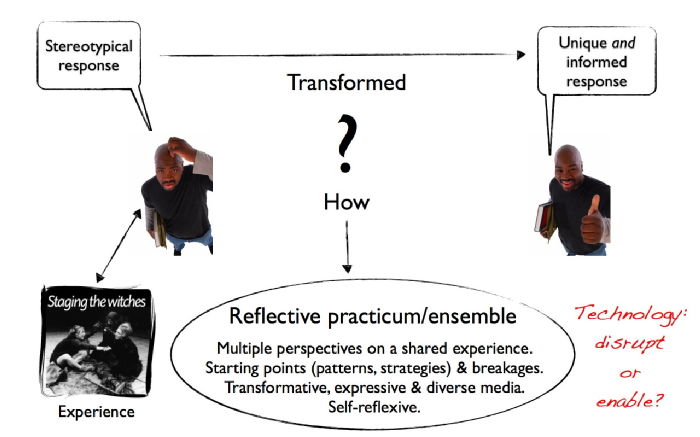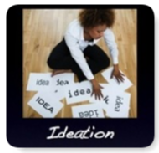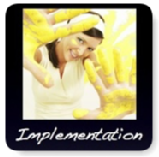All entries for Wednesday 01 December 2010
December 01, 2010
What's the point of arts education? And where does technology fit?

Through the activities in the reflective practicum, the student is able to form their own personal response to an experience, but one that is informed by and founded upon a solid academic and practical basis. To achieve this, they need to be inspired, exposed to alternative perspectives and experiences, given opportunity to experiment and reflect, encouraged to "bracket" their own thoughts and behaviours for critical evaluation, and supported in expressing their response. The reflective practicum is the name given by Donald Schön to the place (physical, virtual) that is designed to support this in an appropriately structured and focussed manner. This has a strong similarity to ensemble practice in theatre. Open-space learning is a set of methods for constituting an effective space of this kind. It performs four important roles:
- Making it easy for students to rapidly present and explore varied perspectives on a shared experience in a risk-free and experimental context, without having to commit to a position too early.
- Providing patterns and strategies for getting into different perspectives on an experience, and forming an individual response - the need for models is balanced with the need to innovate and to be individual.
- Providing easy to use media for communication, experimentation and thinking. OSL uses simple and accessible media as a starting point for the student to use their own language and performance skills. The OSL space makes it easy for students to share techniques and coach each other (online theory building should be explored).
- Encouraging the students to perform their response, and then stand back from it for reflexive consideration (being their own audience) - collective reflection of this kind encourages the students to adopt effective reflexive methods rather than withdrawing into less effective methods with which they may be more familiar.
I argue that conventional online learning techniques and technologies usually mitigate against these objectives. The gap between the individual and the learning-ensemble allows them to fall back into stereotypical responses, using familar media and methods (especially modes of reflexivity). Without the intensity of the live collective space, students will usually reach some kind of accomodation with the technology and activities that allows them to operate within their own existing perspective and skill set.
 Robert O'Toole
Robert O'Toole

 Please wait - comments are loading
Please wait - comments are loading



